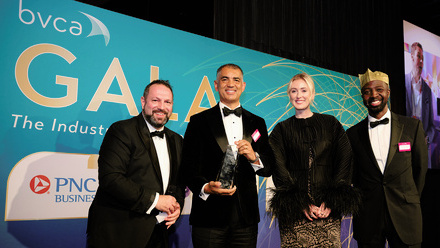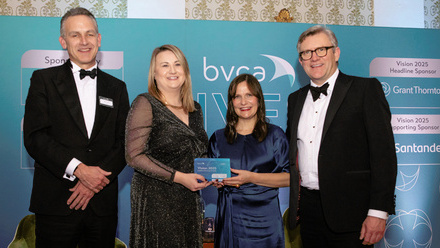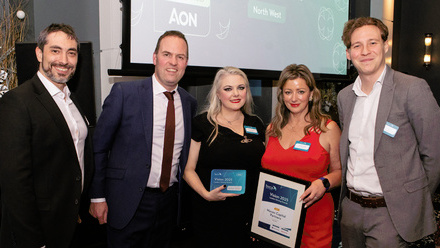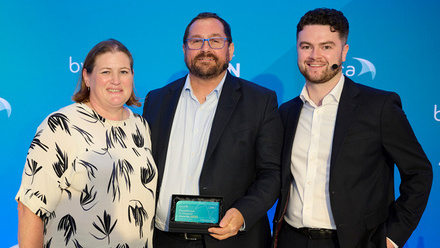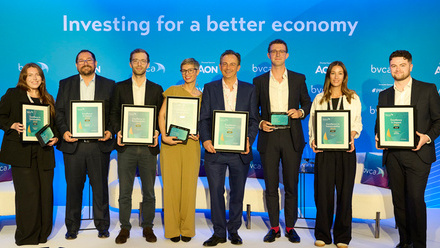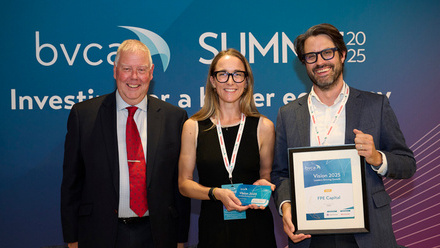Building a Pension System Fit for the Future: Aligning Institutional Capital with Impact
Ahead of the Excellence in Impact Awards, Judge Alex Shadbolt, Future Planet Capital, writes about how unlocking pension fund investment into private markets presents a crucial opportunity to align institutional capital with long-term impact.
As the UK embarks on an ambitious agenda to unlock pension fund investment into private markets, a profound question arises: what kind of future are we investing for?
The Mansion House Accord and broader efforts to catalyse Defined Contribution (DC) pension investment into high-growth sectors mark a vital moment for the private capital industry. Yet beyond questions of access, fees, and performance, this is also a moment to revisit how we craft investment strategies that pension trustees can back with confidence—strategies that reflect intentionality, deliver clarity, and are grounded in long-term impact.
Across the world, impact investing has evolved from niche to necessity. Global impact assets under management have surpassed $1.1 trillion (GIIN), with institutional investors increasingly focused on mobilising capital toward environmental and social outcomes alongside financial returns. From climate resilience and health equity to inclusive innovation, the potential is vast—but it must be made intelligible and investable for those charged with managing other people’s money.
Revisiting Intentionality: A Foundation for Fiduciary Confidence
To unlock new capital—particularly from DC pensions—we need to return to first principles: what is the change we are trying to create, and how do we work with LPs and trustees to articulate, measure, and deliver it?
This starts not with metrics, but with co-creating intentionality. Strong impact strategies are built in partnership with Limited Partners, not handed down to them. Crafting bespoke Theories of Change, and embedding both quantitative and qualitative outcomes that matter to trustees, is key to building conviction. This isn’t about ticking boxes. It’s about designing strategies that make sense to institutional stewards with fiduciary duties to current and future retirees.
Standardised tools—like IRIS+ or SDG alignment—remain valuable reference points. But there is no universal formula. The most credible impact managers are those who demonstrate flexibility, proportionality, and above all, material relevance. In this context, screening is just as important as reporting: can we clearly show how capital drives a meaningful difference in real-world outcomes, at entry, during holding, and at exit?
For trustees to support this journey, they must be part of it. Measurement, in this sense, becomes a product of investment strategy, not its substitute.
A UK Opportunity: Strategic Alignment and Domestic Access
The UK’s innovation economy is uniquely positioned to benefit from this approach. From world-leading life sciences to clean energy and data-driven health, the opportunity for impactful investment is not theoretical—it’s tangible. Yet to date, British pension savers have been underexposed to these growth areas.
According to the BVCA, 75% of capital raised by UK-managed venture capital funds came from overseas investors.
New models are emerging to redress that imbalance. Future Planet Capital’s British Co-Investment Fund (BCF) is one example—structured to connect DC pension schemes with high-growth UK companies in sectors aligned to national priorities. What makes BCF significant is not just its design, but its commitment to working with trustees, platforms, and providers like NatWest Cushon and Mobius Life to remove long-standing barriers to access, scale, and liquidity.
Importantly, it recognises that impact is not a secondary benefit—it is part of the value proposition. In early-stage and frontier sectors, the best indicators of long-term success may be qualitative, narrative, and mission-led, especially in the early years. These early foundations—articulating purpose, mapping stakeholders, identifying plausible change pathways—are not soft substitutes for metrics. They are what enable metrics to emerge. By embedding this intentionality from day one, companies are better equipped to translate mission into measurable, scalable impact as they mature. They are ready not only to deliver outcomes, but to report them credibly and verify them rigorously—whether for investors, regulators, or their own evolving governance. When this approach is matched with financial rigour, it becomes a compelling case for long-term investment.
Building the Future, Measurably and Meaningfully
To unlock institutional capital at scale, we must build trust and clarity—not just metrics. The future of impact investing lies not in reporting for its own sake, but in designing strategies that are co-owned, co-created, and understood by both GPs and LPs. As the industry evolves, initiatives like the NOVA accreditation scheme that the BVCA’s Pensions and Private Capital Expert Panel has proposed, building on lessons from other markets like France’s Tibi scheme, offer pathways to scale without losing sight of purpose.
We must move past the false dichotomy of “impact vs. returns.” At their best, the two don’t just align—they compound each other. Purpose-led businesses tap into structural tailwinds, attract exceptional talent, and build resilience in ways that traditional firms often cannot. This isn’t a marginal pursuit—it’s a blueprint for long-term, sustainable wealth creation.
As judges for this year’s BVCA Excellence in Impact Awards, we’re not just looking for bold ideas—we’re looking for strategies built with purpose, intentionality, and discipline. Strategies that trustees can support with confidence, and that deliver measurable outcomes—financial, social, and environmental.
Because ultimately, impact investing isn’t about compromise. It’s about clarity of purpose. And it offers a powerful answer to the question:
What kind of world do we want to retire into?

Authored by Alex Shadbolt, Investment Manager, Future Planet Capital
Alex is a member of the BVCA's Excellence in Impact Awards judging panel.
